Synology DS1621+ vs DS1621xs+ NAS Drive – Which Should You Buy?
Right now, if you wanted to buy a Synology Desktop NAS for RAID 6, you are a bit spoilt for choice. The growing popularity and viability of RAID 6 as a configuration (i.e having 2 drives of failure protection) has become far more acceptable thanks to hard drives getting larger and larger in capacity. With modern NAS hard drives, such as the Seagate Ironwolf and WD Red arrive can now arriving in 16TB and 18TB, you can now comfortably accommodate a RAID 6 environment and still have a remarkably large amount of available storage. Alongside this, the performance benefits of RAID 5 and RAID 6 are far higher than they have ever been, with increased improvements in data handling internally, so many users are able to get more compact RAID systems that can accommodate a handful of drives, whilst still achieving high speed and a good level of drive redundancy. Into this current trend for storage, Synology has recently released two 6-Bay Solutions in their popular Diskstation desktop series, the Synology DS1621xs+ NAS in September and the DS1621+ NAS in October of 2020. The former a much more enterprise-grade product that provides robust storage, surrounded by higher-end hardware, services and support, whereas the latter is a much more Sall/Medium (SMB) solution that finds a much more balanced hardware vs price point level in its architecture that allows users to have a similar level of storage potential, with the services and support trimmed back slightly. Each has its own advantages and disadvantages, with very distinct end-users in mind (business and prosumers alike), so which one should you buy? Let’s find out today which one deserves your data!
Synology DS1621+ vs DS1621xs+ NAS – Price and Value
Probably the first big roadblock for many buyers when choosing between the DS1621+ and DS1621xs+ NAS will be the difference in price, which is pretty substantial – almost double in fact! The Synology DS1621xs+ will cost you around £1300/$1650 without your local tax or hard drive (or SSD) media, a noticeable jump up from the £700/$850 or so for the Synology DS1621+. If you are already on the top end of your budget or are looking to spend more money of storage media (i.e MORE terabytes) then it will seem pretty crazy to spend so much more money on another NAS that seems so similar in architecture (6 Bays, 4-Core CPU, DDR4 Memory, PCIe upgrade, DSM, BTRFS, etc). But we need to move away slightly from the subject of ‘price/cost’ and more towards Value to understand this big price difference.
The Synology DS1621xs+ has a number of upgrades and standalone extras when compared with the DS1621+ that, once you calculate them, really do start to make up that price difference. Maybe not completely, but certainly, they make a case for the extra cost. Examples such as the Xeon Quad-Core processor in the DS1621xs+ being more powerful and capable than the Ryzen V1500B, or the 8GB of DDR4 memory in the XS unit over the 4GB in the DS1621+, as well as the 5yr warranty vs the 3yr warranty on the DS1621+. Finally, there is the fact that although both units can have their storage expanded, the DS1621xs+ has the 10Gbe connection by default, which allows further expandability in its connections down the line. It is STILL a big, big price difference and technically if you costed the CPU difference, the extra 4GB RAM, the 2yrs warranty and 10Gbe as standard it might make up the price difference, but if you do not plan on using ANY (or even most) of these features and services in the lifespan of the product, then the DS1621+ is still the better price choice.
Result – You Should Buy the Synology DS1621+ NAS As It Is More Affordable, But DS1621xs+ Is Better Value
Synology DS1621+ vs DS1621xs+ NAS – Design
Design is so, SO slim a distinction between the DS1621xs+ and DS1621+ that you can hardly see the difference physically. Aside from a slight rearrangement of the ports (the facilitate the difference in external network architecture) they are near enough identical!
| Synology DS1621XS+ NAS | Synology DS1621+ NAS |
Both systems use the same NVMe SSD installation slots inside the main SATA storage bay area, as well as the base twin SODIMM DDR4 Memory slots. They even arrive with the exact same internal 250W PSU slotted into the side of the chassis. The Synolgoy 6-Bay Diskstation chassis has been around now for just under 3years in units like the DS3018xs and DS1618+ before these two and it is still very nice to look at.
In fact, in the videos whereby I discussed the pros and cons between the DS1621+ and DS1621xs+, you can see the same hardware design and architecture points being raised. The only real areas where design can be separated is in terms of the heat generated, the power consumed and the weight of each chassis.
Ultimately, it is impossible to separate these two in terms of design.
Result – IT’S A TIE – THEY ARE TOO SIMILAR IN DESIGN
Synology DS1621+ vs DS1621xs+ NAS – Hardware
This is where we can see the big, BIG difference between these two NAS devices. As mentioned above, the hardware difference is what makes up the big price difference between the DS1621+ and DS1621xs+. Below we can look at the main hardware specifications and I have highlighted in green the areas where one system is superior to the other.
| Core Hardware | ||
| Model |
SYNOLOGY DS1621+ NAS Drive
|
SYNOLOGY DS1621xs+ NAS Drive
|
| Processor model | AMD Ryzen V1500B | Intel Xeon D-1527 |
| Processor architecture | 64-bit | 64-bit |
| Processor clock | 4-core 2.2 GHz | 4-core 2.2 (base frequency) / 2.7 (maximum overclocking) GHz |
| Hardware encryption engine (AES-NI) | YES | YES |
| Memory | ||
| System memory | 4 GB DDR4 ECC SODIMM | 8 GB DDR4 ECC SODIMM |
| Pre-installed memory modules | 4 GB (4 GB x 1) | 8 GB (8 GB x 1) |
| Total memory slots | 2 | 2 |
| Maximum memory capacity | 32 GB (16 GB x 2) | 32 GB (16 GB x 2) |
| Storage device | ||
| Number of Disk Slots | 6 | 6 |
| Maximum number of disk bays for installing expansion units | 16 (DX517 x 2) | 16 (DX517 x 2) |
| M.2 disk bay | 2 (NVMe) | 2 (NVMe) |
| Compatible Disk Type |
|
|
| Maximum single storage capacity* | 108 TB |
|
| Disk hot swap support | YES | YES |
| External port | ||
| RJ-45 1GbE network port | 4 (Support Link Aggregation / Failover) | 2 (Support Link Aggregation / Failover) |
| RJ-45 10GbE network port | N/A | 1 |
| USB 3.0 port | 3 | 3 |
| eSATA port | 2 | 2 |
| PCIe | ||
| PCIe expansion | 1 x Gen3 x8 slot (x4 link) | 1 x Gen3 x8 slot (x8 link) |
| Exterior | ||
| Size (height X width X depth) | 166 mm x 282 mm x 243 mm | 166 mm x 282 mm x 243 mm |
| weight | 5.1 kg | 5.3 kg |
| other projects | ||
| System fan | 92 mm x 92 mm x 2 pcs | 92 mm x 92 mm x 2 pcs |
| Fan mode |
|
|
| Replaceable system fan | YES | YES |
| The front panel LED indicator can adjust the brightness | YES | YES |
| Automatic power recovery | YES | YES |
| Noise value* | 25.2 dB(A) | 25.2 dB(A) |
| Timer switch | YES | YES |
| Wake on LAN | YES | YES |
| Power supply/transformer | 250 W | 250 W |
| AC input voltage | 100 V to 240 V AC | 100 V to 240 V AC |
| Current frequency | 50/60 Hz, single frequency | 50/60 Hz, single frequency |
| Power consumption power* | 51.22 W (Access) 25.27 W (HDD hibernation) |
62.85 W (Access) 34.26 W (HDD Hibernation) |
| British Thermal Unit | 174.77 BTU/hr (Access) 86.22 BTU/hr (HDD Hibernation) |
214.45 BTU/hr (access) 116.89 BTU/hr (hard drive hibernation) |
| Remarks |
|
|
| Warranty | Hardware warranty for 3 years, which can be extended to 5 years coverage- EW201 | 5 years |
| Optional accessories |
|
|
The Xeon CPU in the DS1621xs+ NAS, although not the newest generation and released earlier than the Ryzen V1500B in the DS1621+, has an identical main power level at 2.2Ghz, but can also be burst/clocked higher by the system as needed. This processor is far superior at file handling overall (although both are good) and will be the better choice for handling multiple tasks/users at any given time – a priority in enterprise/large business storage sectors. Both systems arrive with DDR4 2666Mhz error code correction (ECC) memory, but it should be highlighted that you get twice as much on day one in the DS1621xs+, which means more users, more VMs, more cameras for surveillance and better cache handling as your storage grows.
Then there is the inclusion of 10Gbe on the Synology DS1621xs+ as standard that is a real win here. Yes, the DS1621+ has 4 RJ45 1Gbe LAN ports that can be link aggregated (port trunked) to provide 4Gbe to a supported managed network switch (i.e. up to 440MB/s), but the DS1621xs+ still has 2x 1Gbe RJ45 along with the 1x 10GBASE-T (Copper) 10Gbe connection, allowing up to a potential 1220MB/s throughput to a supported 10Gbe managed switch (spread). Both systems have the PCIe Gen 3 x8 slot which allows the installation of 1-2 port 10Gbe ethernet upgrade cards, but that still means that both systems have the same expandability in that slot and therefore you will end up more beneficial in the DS1621xs+ overall. Finally, there is the fact both systems can have 2 storage expansions over eSATA, have the same 250W PSU and same M.2 NVMe SSD caching options. Despite them being the same architecture on those points, the CPU in the DS1621xs+ will just give you better top speeds in single and multiple simultaneous connections to the network, as well as use less resources whilst doing it – which means a hight overall number of processes possible.
Result – You Should Buy the Synology DS1621xs+ NAS
Synology DS1621+ vs DS1621xs+ NAS – Performance
As mentioned, the Synology DS1621xs+ has better hardware by default than the DS1621+, which means better performance vs resource use in most storage processes. The same goes for if yo uninstall a 10Gbe upgrade card that will add 1-2 more 10G connections to your network. The storage media you choose to install will, of course, make a big difference and dictate the top speed and how much you can saturate the external connections, but internally, the DS1621xs+ architecture will just do things quicker and allow more things to get done.
This can be applied to both first-party applications in the Synology DSM app centre (Surveillance, Virtual Machine Deployment, Photo/Video handling, the collaboration suite and multi-tiered backups with Hyper Backup and Active Backup in DSM), a well as how the hardware in the DS1621+ and DS1621xs+ can handle popular 3rd party applications like VMware, Hyper-V, Plex Media Server and more. Likewise, the 10Gbe connection available on Day 1 of the DS1621xs+ allows you to provide 1000MB/s (in the right RAID) to your network and thereby giving up to 10x 1Gbe connected users the FULL bandwidth they can handle.
Finally, that 8GB of memory on day one will make things super smooth in terms of application performance. If you plan on deploying the DS1621+ or DS1621xs+ for surveillance station in ou home or office environment, both support a similar level of cameras #s BUT you are going to eat up ALOT of memory to support more cameras! 8GB of memory at the start means even if you deploy 8-10 24×7 cameras at initialization, you still have a tonne of memory spare for virtual machines and the DSM system environment.
Click Below to find out where to download FREE NAS Virtual Machine Images and how to install them
Ultimately, the DS1621xs+ is just a better hardware package over the DS1621+ NAS and if you are choosing between them with Hardware as your driving demand, then the DS1621xs+ NAS wins.
Result – You Should Buy the Synology DS1621xs+ NAS As It Has Better Hardware
Synology DS1621+ vs DS1621xs+ NAS – Storage
Yet another area where the difference between these two 6-Bay NAS is remarkably slim at first glance. Both support 16/18TB NAS hard drives, currently from WD Red and Seagate Ironwolf, ou to attach two units of the eSATA connected DX517 5-Bay expansion JBOD, which will total 16 maximum drives in your storage architecture. This will need to be funneled into storage pools and volumes, but at current maximum capacity NAS hard drives, both the DS1621+ and DS1621xs+ allows (to date):
NAS in RAID 0 =108TB*
NAS in RAID 5 = 90TB*
NAS in RAID 6 = 72TB*
NAS & 2x DX517 Expansion in RAID 0 =288TB*
NAS & 2x DX517 Expansion in RAID 5 = 270TB*
NAS & 2x DX517 Expansion in RAID 6 = 252TB*
(*Terobytes, assuming full bay population and 18TB NAS HDDs)
So regardless of which Synology 6-Bay system between these two that you decide to buy, you are still going to get the same storage potential ultimately. That said, in order to reach the top end capacities, you WILL need more memory in order to get support and full speed, which although both systems support upto 32GB, the DS1621xs+ DOES arrive with 4GB more on Day 1. Additionally, both systems arrive with M.2 NVMe SSD cache slots (which cannot be used for raw storage) that allow you to install super-fast PCIe based SSD that will bolster your larger, but slower HDD RAID array with the high IOPs, performance and low latency of the SSDs. It works out much, MUCH more affordable than filling a NAS with all SSDs and is around 10-20% faster than HDDs on their own with more commonly accessed/shared files, but likewise, the more cache you want to use/need, the more memory you will need to have free on your system ,which gives the DS1621xs+ another small advantage.
However, these small early memory benefits in storage performance pale in comparison to the advantage the DS1621+ being the ONLY one of the two that supports Synology Hyrbid RAID (SHR) which allows users to mix drive capacities inside a single RAID group. Typically, in traditional RAID, if you installed different size drives, the system will only ‘see’ them all as the smaller available drive size, so it can ensure that it is able to retrieve data from a single drive failing. SHR will just ensure that there is 1x drive of the capacity protected from drive failure, then just combine the total capacity available into a much bigger array. Very few people take advantage of this on day 1 of their NAS purchase, as they would rather buy the NAS and populate with new drives of the same capacity. However, years down the line, as your storage fills up, the idea of removing some drives and gradually replacing with much, much bigger drives is very appealing and can work out to be much more cost-effective in the long run. SHR and SHR-2 (2 drive fluid RAID protection) have become a very popular selling point for Synology and its precedence in the DS1621+ will definitely be noted by many. However, the DS1621xs+ does not allow you to create an SHR configuration, limiting you to just the traditional RAID 0/1/5/610/etc. Synology explains that the reason for this position is that SHR, although very flexible, does not quite give the same peak Read/Write performance compared with traditional RAID and more enterprise RAID solutions like the XS+ series are used by large numbers of people or more demanding software service use – therefore they remove SHR as a choice to ensure that the enterprise users get the very best performance by default. It’s still a shame and many users are not best pleased about lack of SHR on the DS1621xs+, but if you are upgrading an existing Synology NAS system to the DS1621xs+ and you currently have an SHR configuration, you CAN migrate it over (see video below).
Ultimately, in terms of storage, the SHR on the DS1621+ is just too good a feature not to give it the point in the storage round. Both systems support the traditional RAID configs, as well as NVMe caching support and the DS1621xs+ still gives that tiniest bit extra storage performance thanks to that CPU+Memory Day 1 combo BUT with SHR on the DS1621+ NAS, you just have more storage flexibility that will be exceptionally useful later on.
Result – You Should Buy the Synology DS1621xs+ NAS Because of SHR
Synology DS1621+ vs DS1621xs+ NAS – Conclusion
It really does come down to Value, Scalability and Performance when comparing the DS1621+ and DS1621xs+ NAS. The Newer (by a month!) Synology DS1621+ brings a lovely middle ground of hardware vs storage for the price tag, as well as the expandability and fluidity of its internal upgrades and support of Synology Hybrid RAID, thereby ensuring that you can leverage your budget more towards storage/drive-media and not have to pay for upgrades on day 1 that you might not use for years/at all. That said, the DS1621xs+ is just better value overall, giving you a CPU several times more powerful and more memory for faster internal performance, 10Gbe and PCIe Upgradability together to give you better short AND long term external performance and then you have a longer manufacturers warranty at 5yrs TOO! The lack of SHR is a bit of ablow, but you are just getting more hardware for your money here in the DS1621+ and it only takes the necessity of 1-2 of these features to make the additional spend worth in in the years this system will be working hard.
Result – You Should Buy the Synology DS1621xs+ NAS Because You Get More For Your Money

SYNOLOGY DS1621+ NAS Drive
|

SYNOLOGY DS1621xs+ NAS Drive
|
Click Below to read the reviews of the Synology DS1621+ & Synology DS1621xs+ NAS:
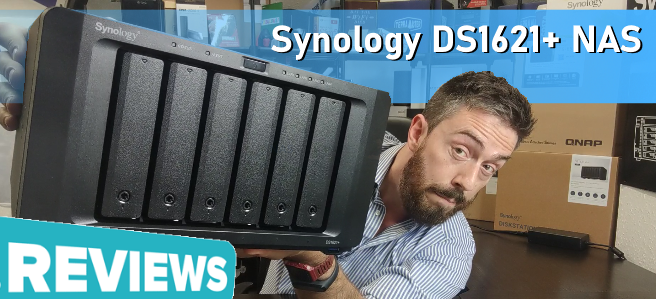 |
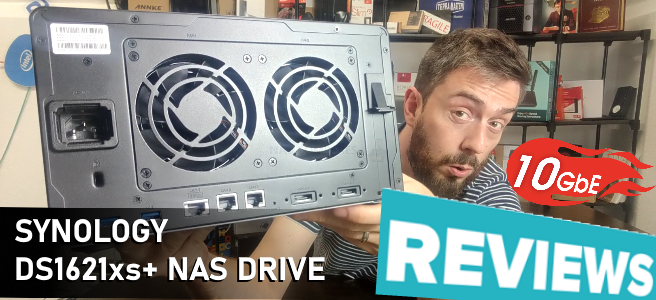 |
🔒 Join Inner Circle
Get an alert every time something gets added to this specific article!
This description contains links to Amazon. These links will take you to some of the products mentioned in today's content. As an Amazon Associate, I earn from qualifying purchases. Visit the NASCompares Deal Finder to find the best place to buy this device in your region, based on Service, Support and Reputation - Just Search for your NAS Drive in the Box Below
Need Advice on Data Storage from an Expert?
Finally, for free advice about your setup, just leave a message in the comments below here at NASCompares.com and we will get back to you. Need Help?
Where possible (and where appropriate) please provide as much information about your requirements, as then I can arrange the best answer and solution to your needs. Do not worry about your e-mail address being required, it will NOT be used in a mailing list and will NOT be used in any way other than to respond to your enquiry.
Need Help?
Where possible (and where appropriate) please provide as much information about your requirements, as then I can arrange the best answer and solution to your needs. Do not worry about your e-mail address being required, it will NOT be used in a mailing list and will NOT be used in any way other than to respond to your enquiry.

|
 |
EVERYTHING NEW from Minisforum @ CES 2026
Gl.iNet Slate 7 PRO Travel Router (and Beryl 7) REVEALED
Minisforum N5 MAX NAS - 16C/32T, 128GB 8000MT RAM, 5xSATA, 5x M.2, 2x10GbE and MORE
The BEST NAS of 2026.... ALREADY??? (UnifyDrive UP6)
How Much RAM Do You Need in Your NAS?
A Buyer's Guide to Travel Routers - GET IT RIGHT, FIRST TIME
Access content via Patreon or KO-FI





Discover more from NAS Compares
Subscribe to get the latest posts sent to your email.


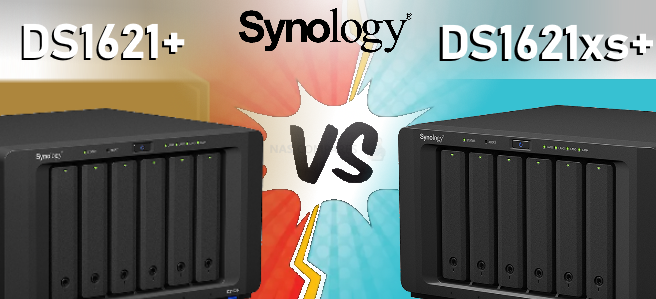
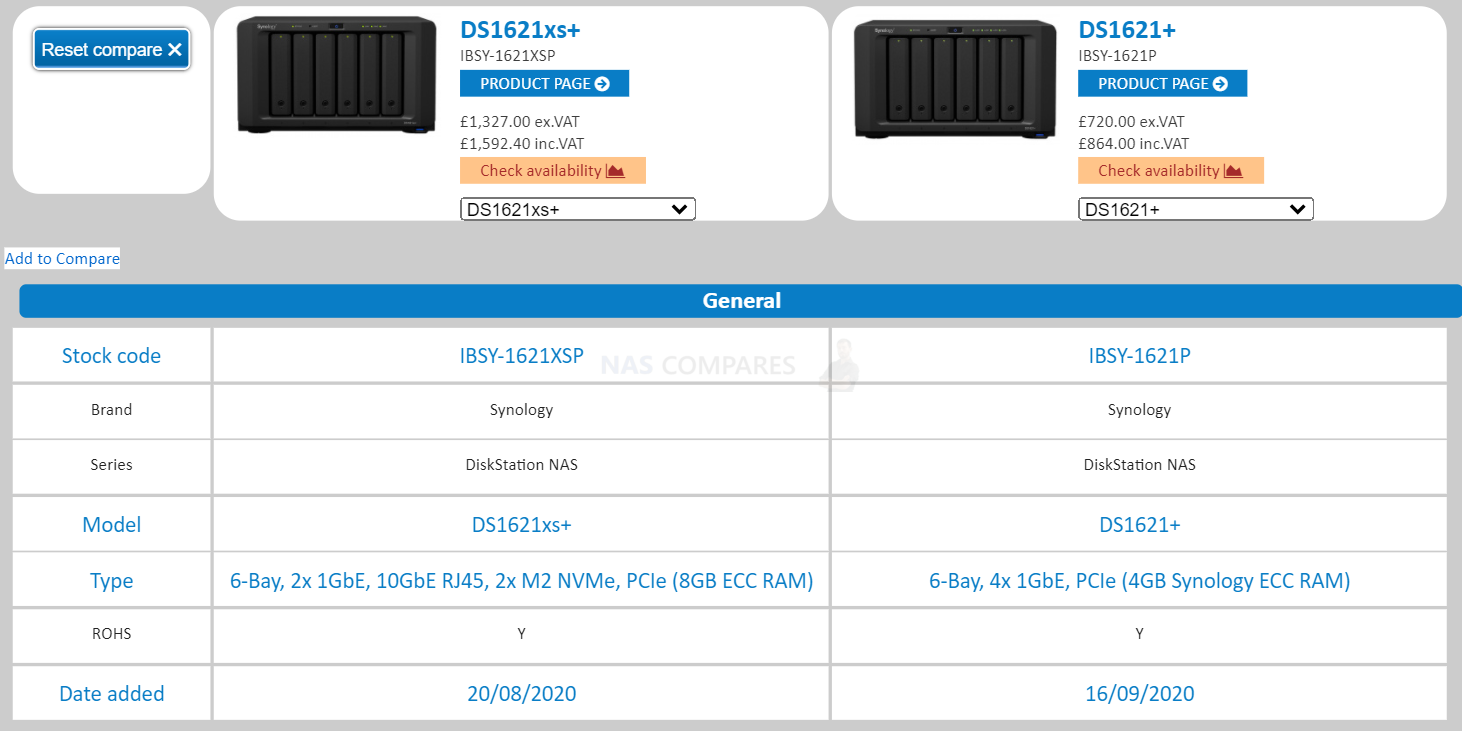
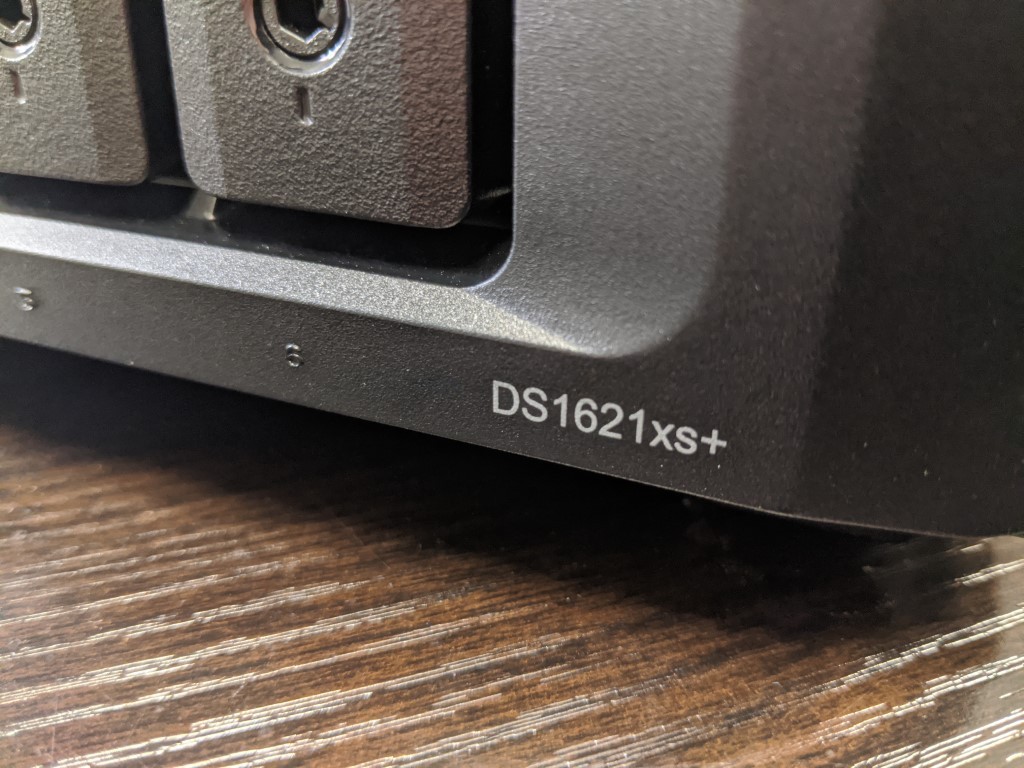
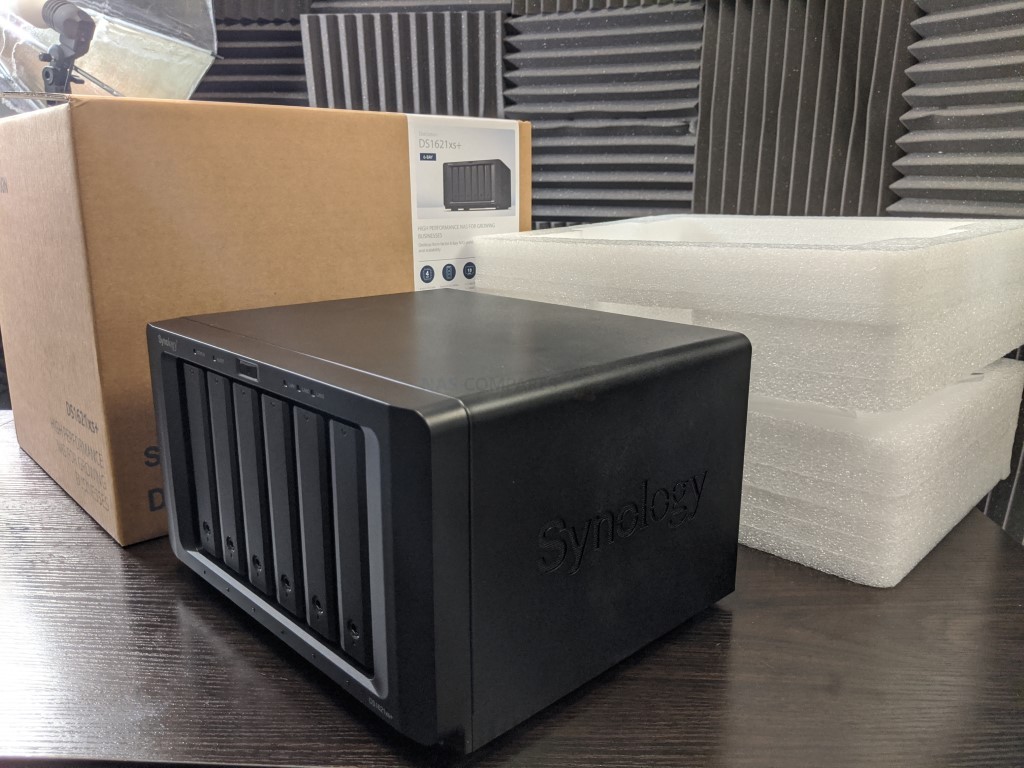
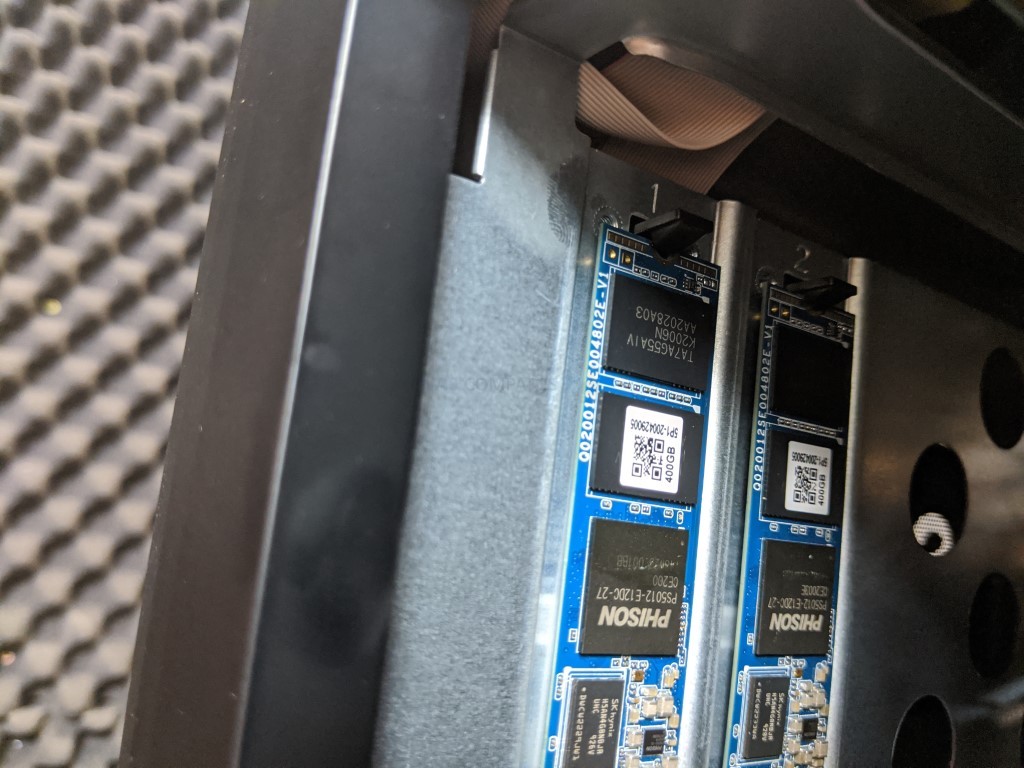
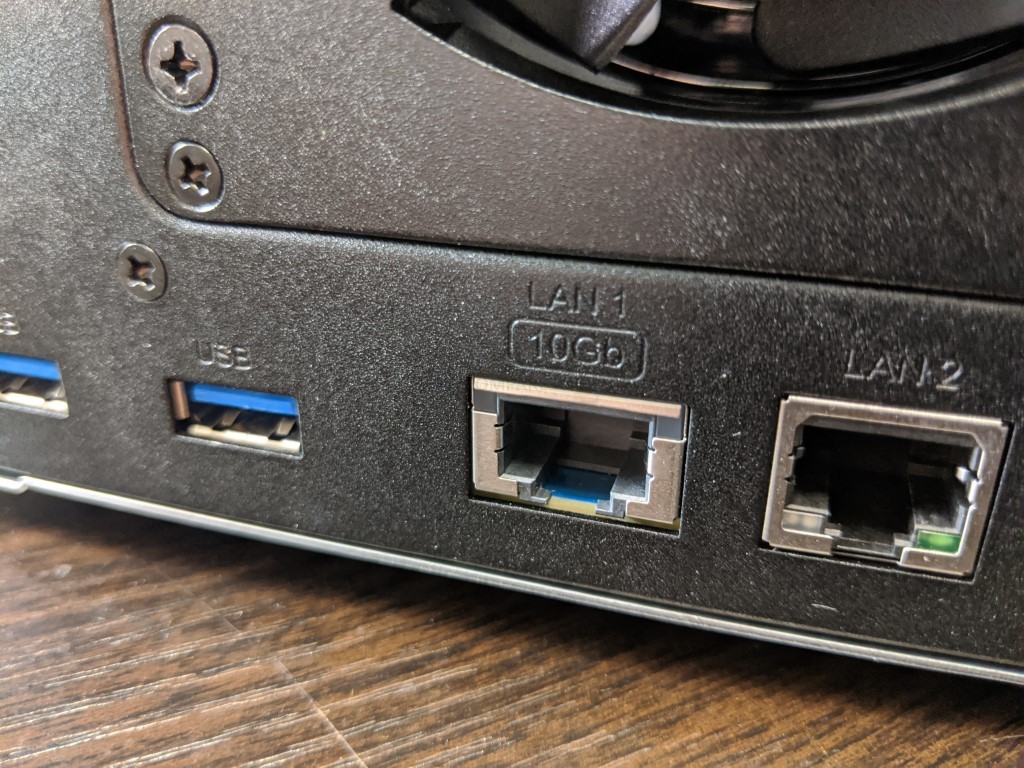
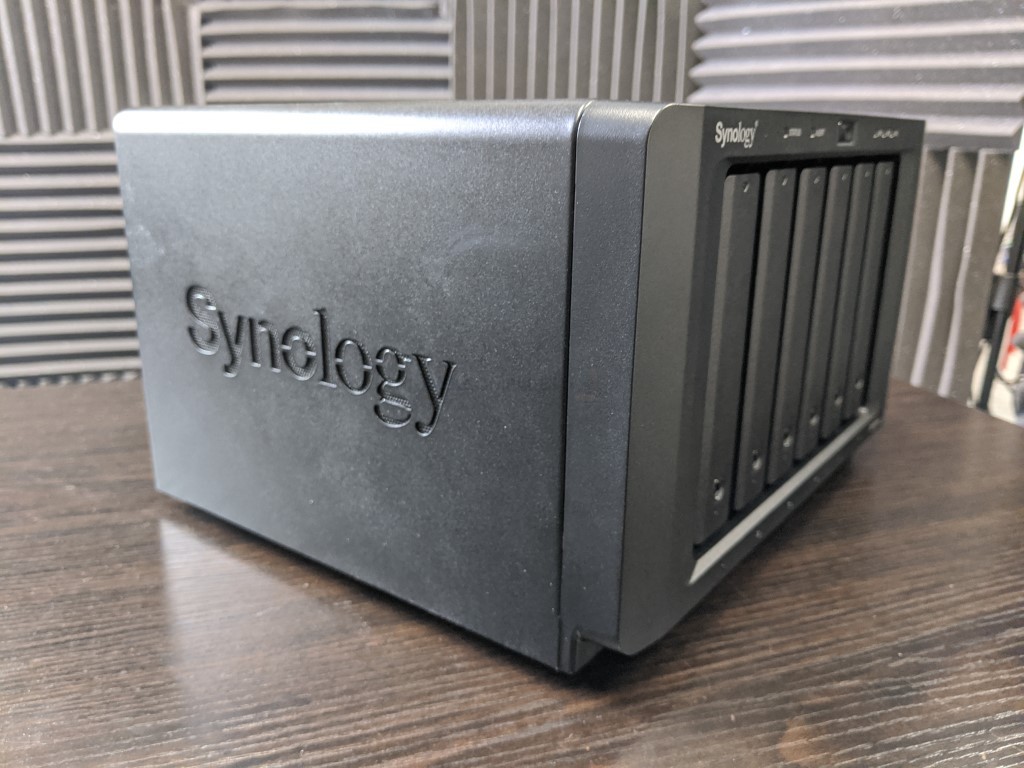
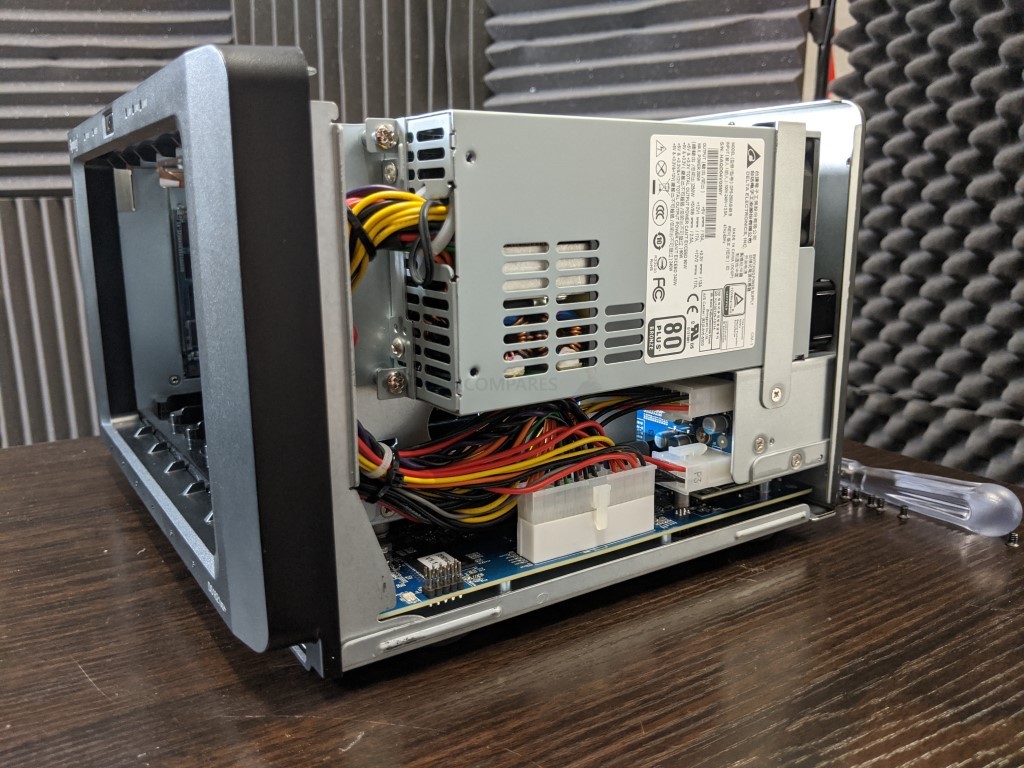
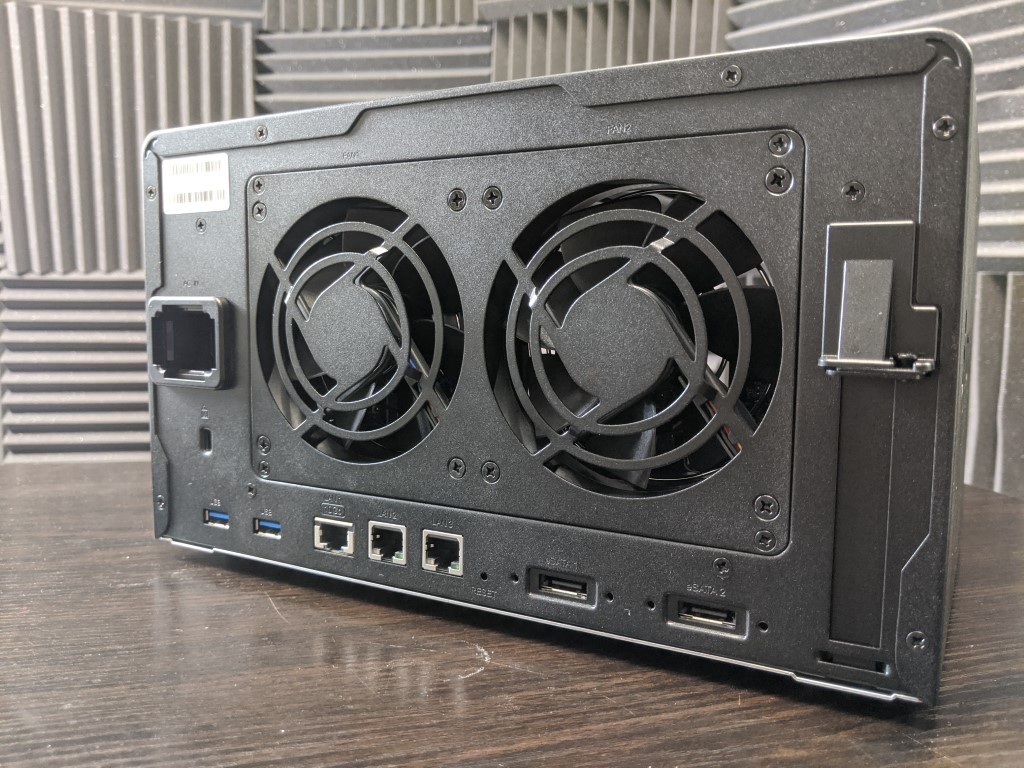
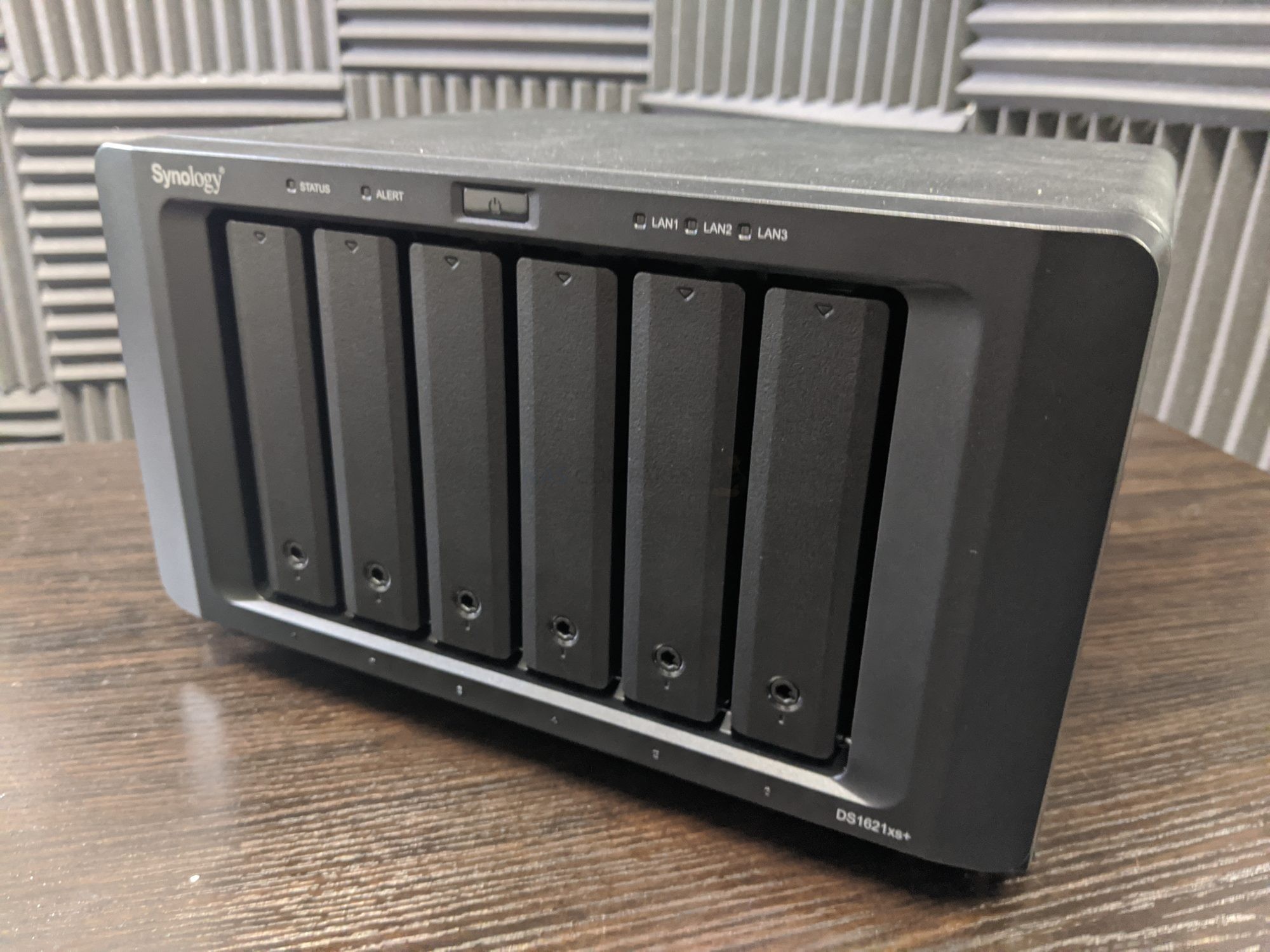
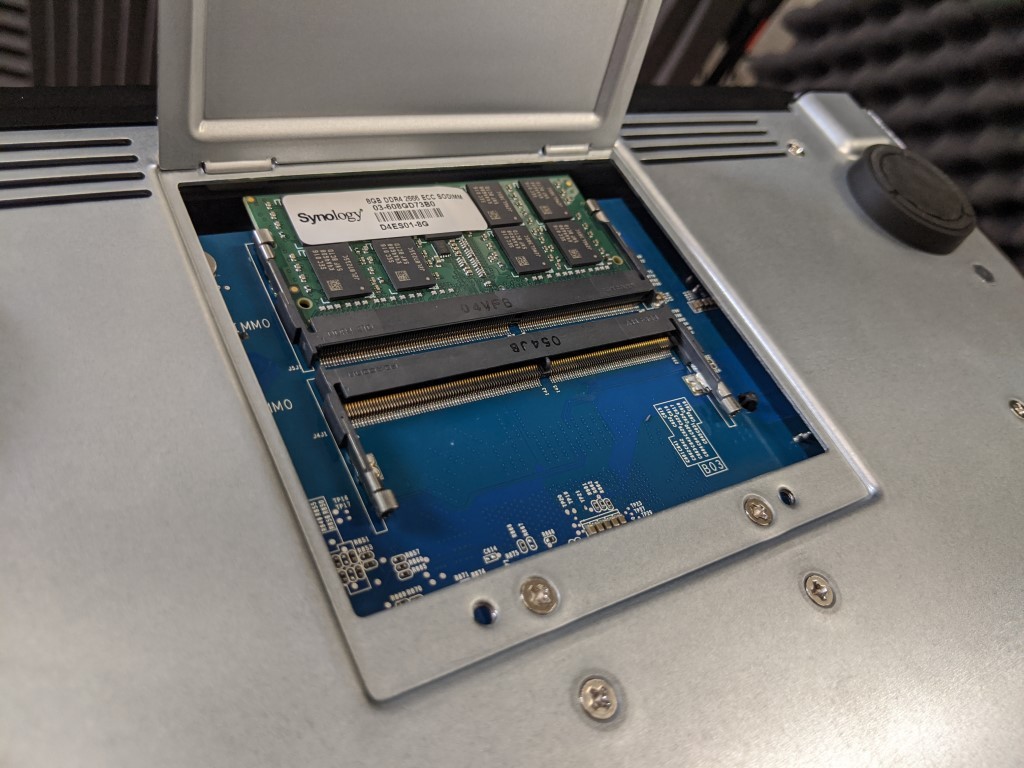
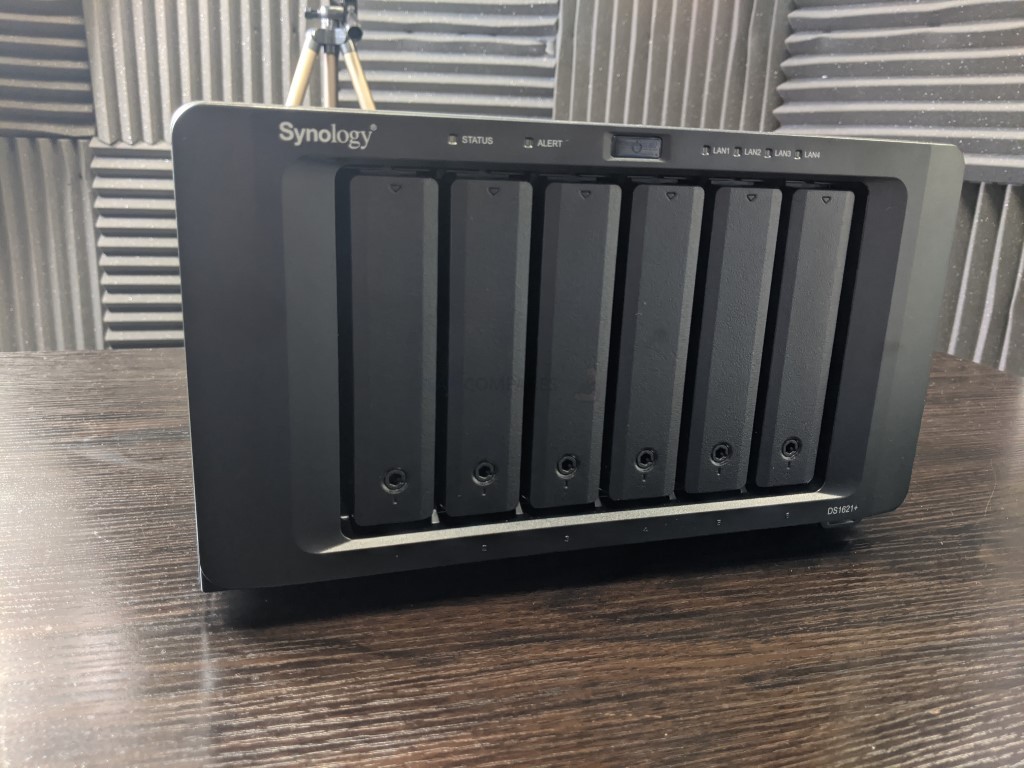
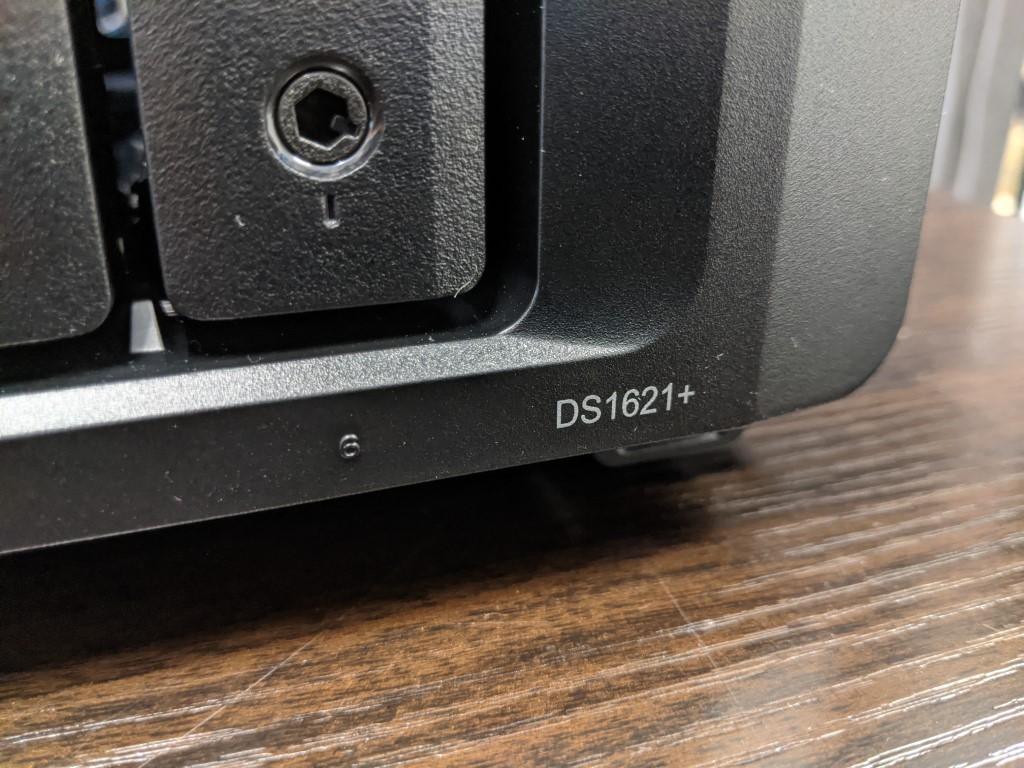
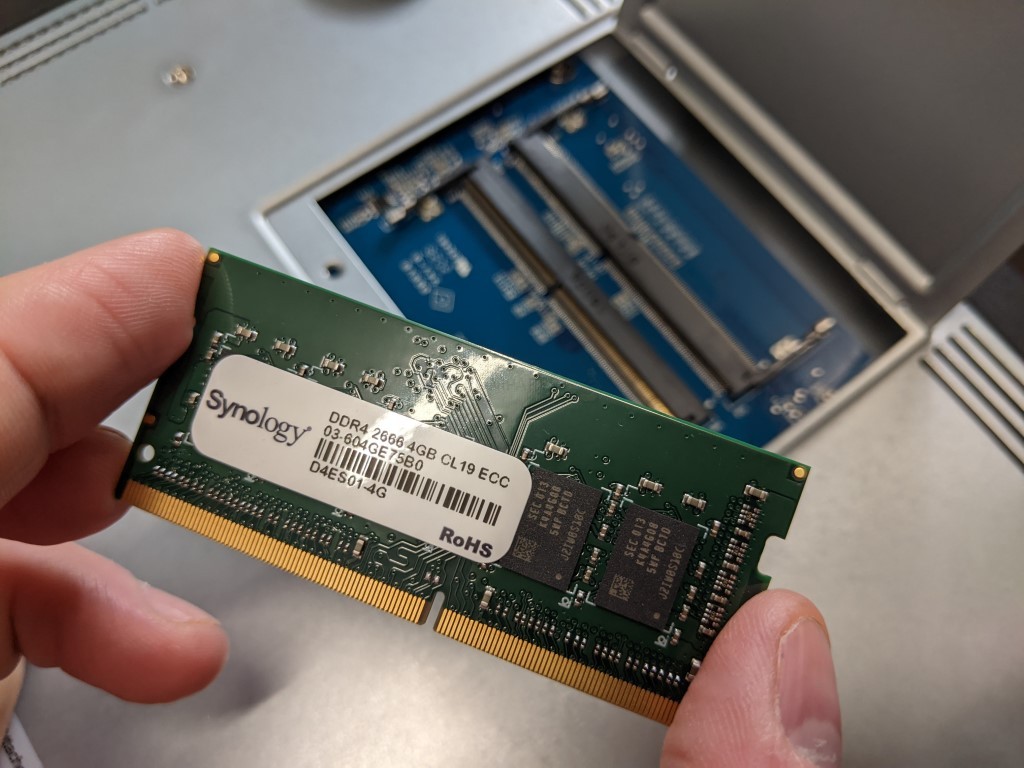
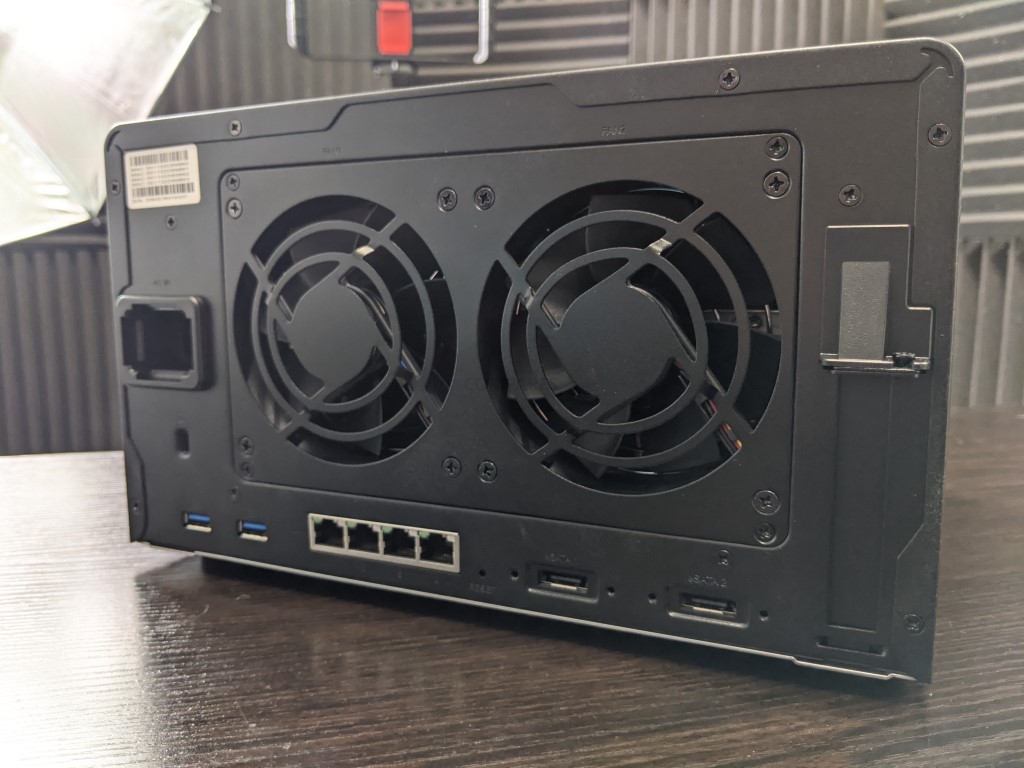
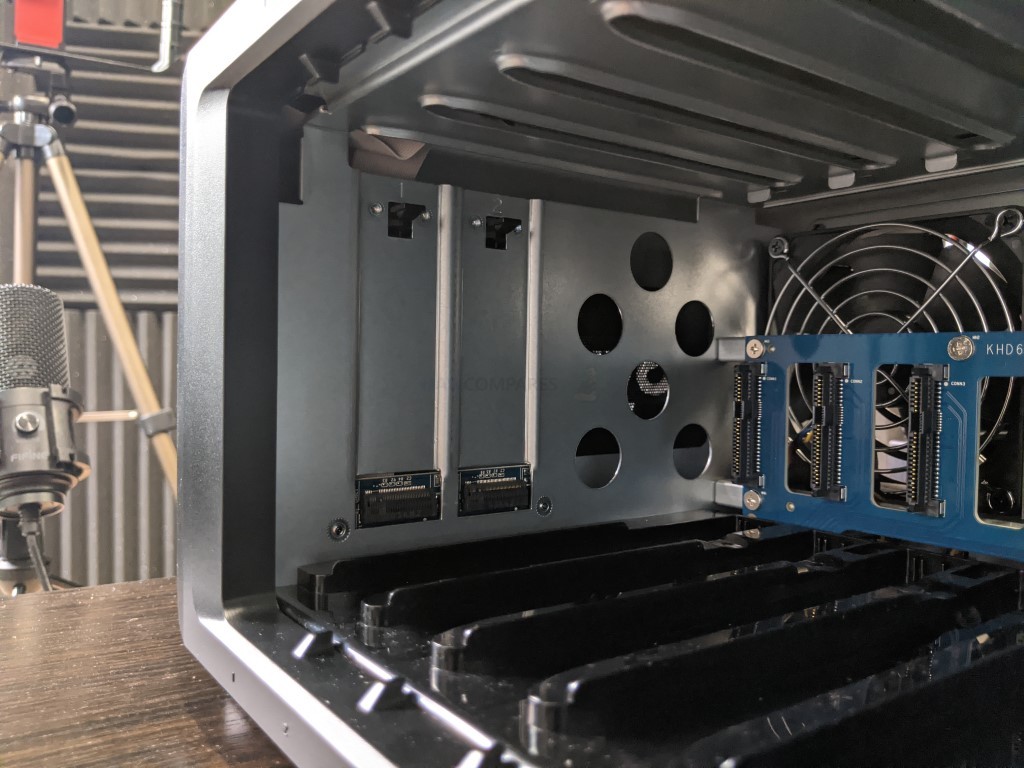
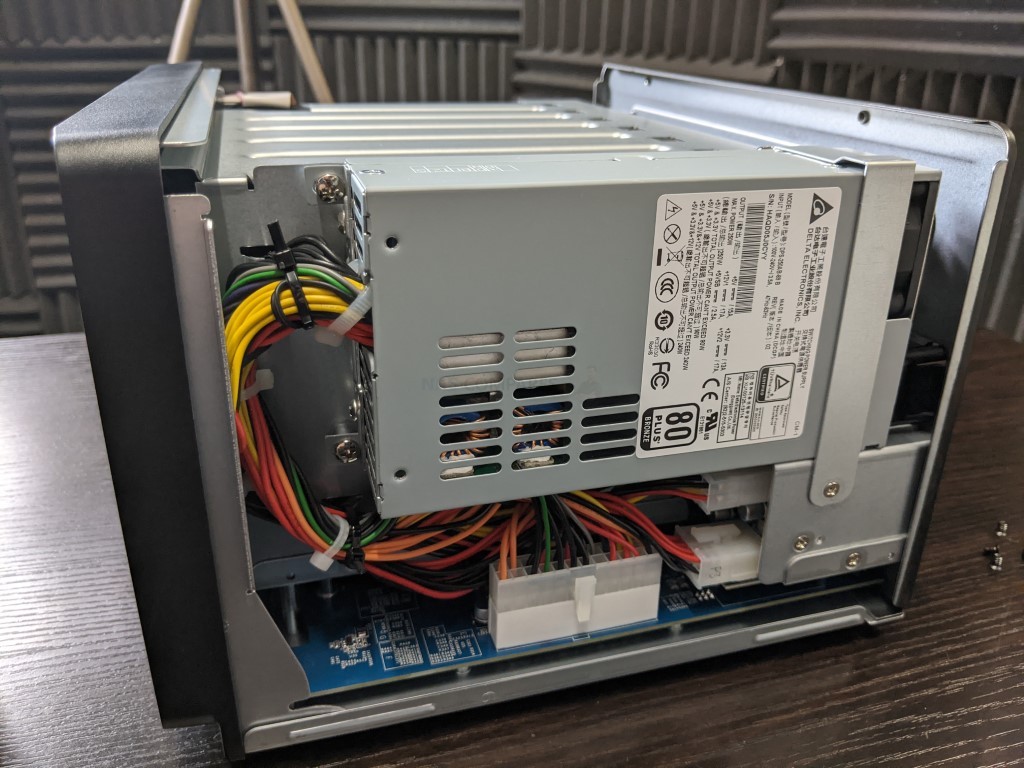
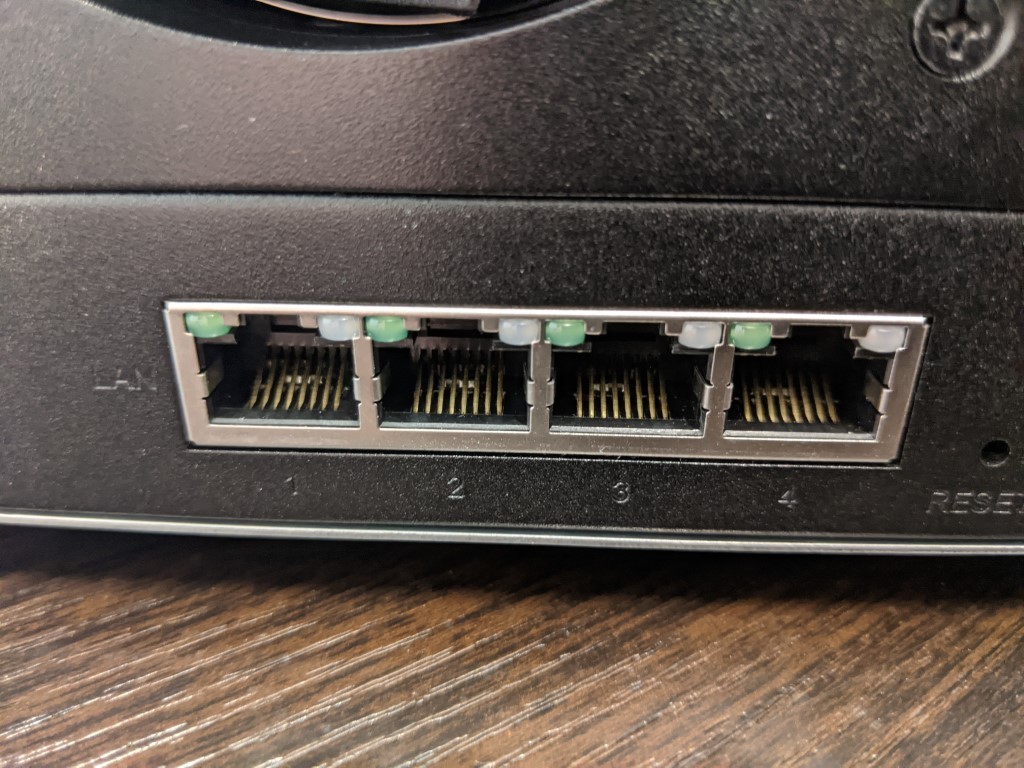
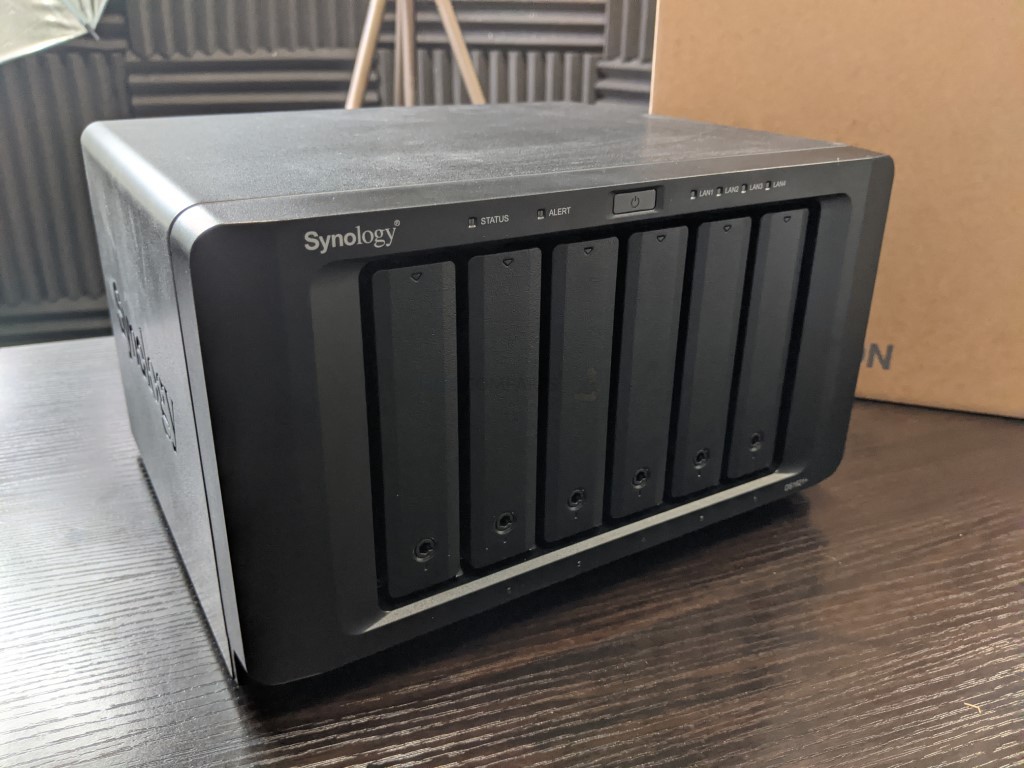
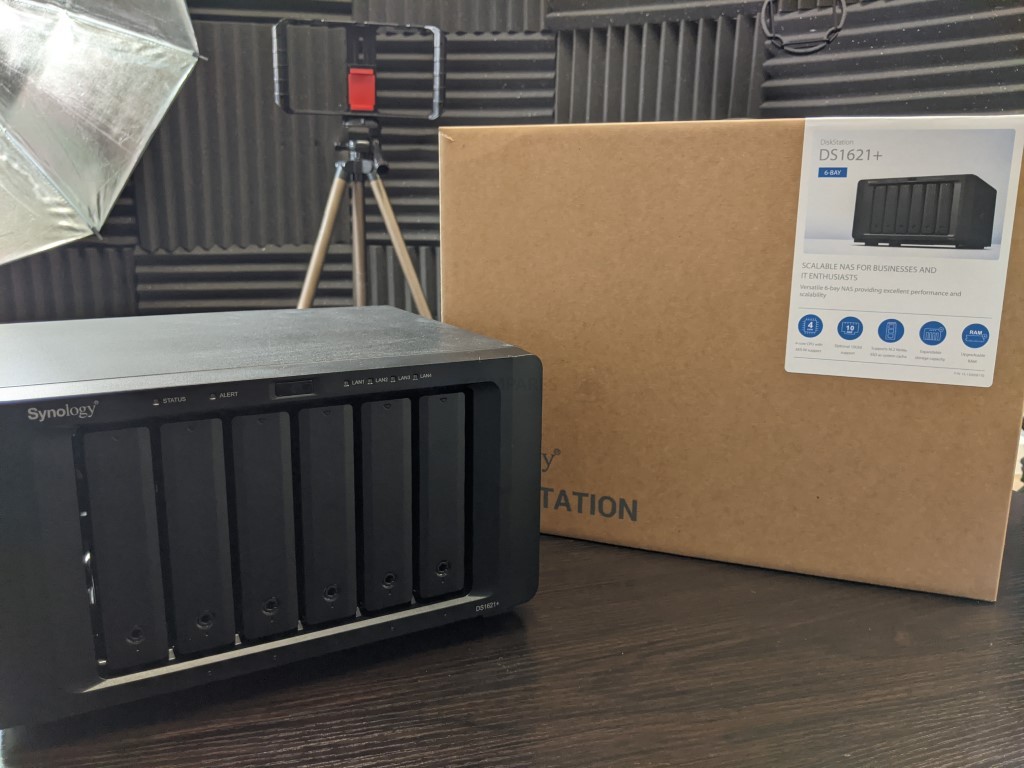

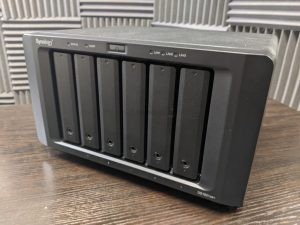
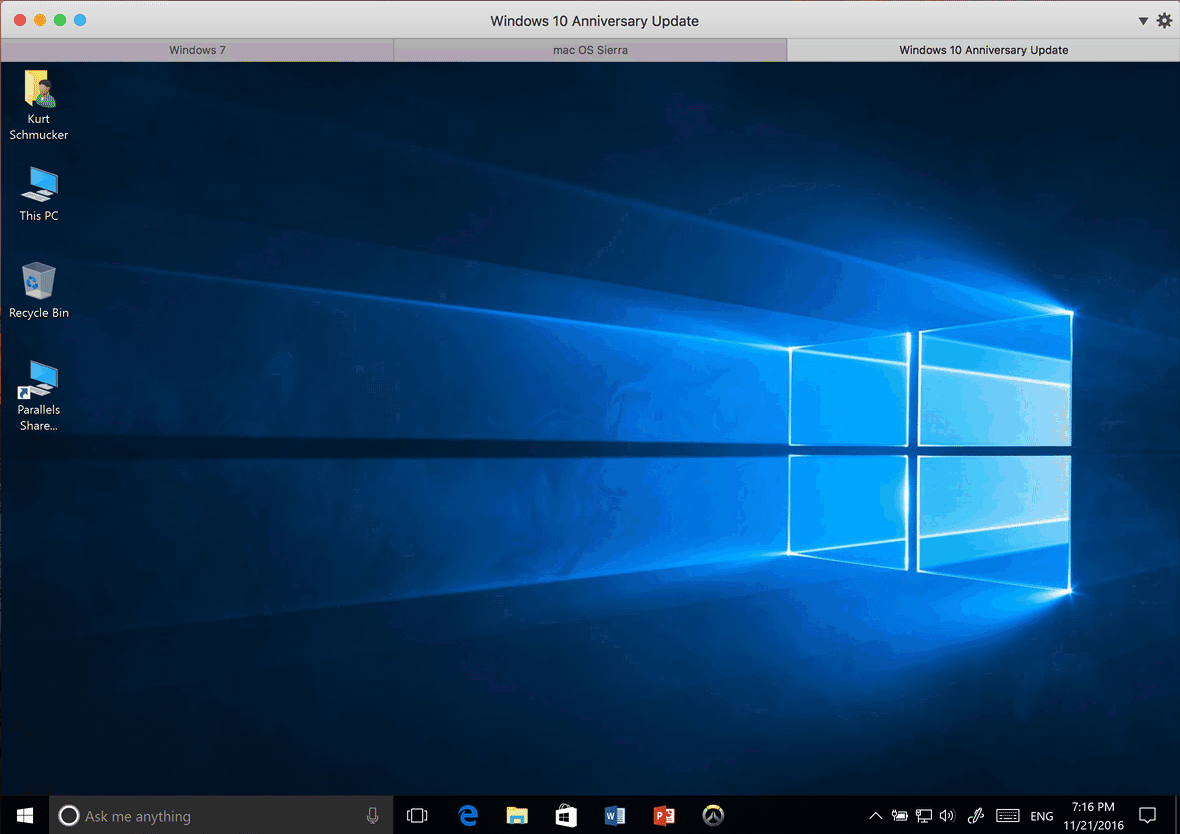



Should I upgrade the DS1621+ or just get DS1621xs+ if I only need 32GB RAM and 10G. Like I mean does the addition of these add-ons seperate come anywhere close to DS1621xs?
REPLY ON YOUTUBE
I’ve just found a linke that guides you to enable SHR support, and I’ve tested it on my DS1823xs+, and it worked! Share with you guys.
REPLY ON YOUTUBE
I had problem about my synology nas
And Steve Baker
Technical Support Engineer write me about my problem that
We are sorry to hear that your DS218 has to be reset. This is likely caused by an issue in the DSM operating-system.
We understand that you are worried about losing your data. Please rest assured, your data should not be affected by the reset as the OS and data are stored in separate partitions on the drives. When re-installing the OS, the system should normally not touch the data-partitions of your drives.
I beleived and i did what he said now all my data erased omg i shocked after sir Steve Baker dissepeared i am alone there is nothing in my hands
Synology is regret bad nas choose qnap there isnt good support for problemss !!!
There is no good service and support becarefullll!!!
REPLY ON YOUTUBE
can you mix RAM? Leave the 8GB that ships with it and add a 16GB for a total of 24GB of RAM? I see you created a Read-Write Cache with the two SSD’s in a RAID1 setup. Does DSM have other types of cache like a Meta Data Cache or others? What about the cache in RAM? Thanks hope all is well over there!
REPLY ON YOUTUBE
Sorry, can someone help me ? I had setup my old laptop for Synology dsm nas server and they work great , but it only about testing environment.Now i have want to make real nas like pc : motherboard with 6 hdd and 2 nvme , ryzen 2600 ,…, and i dont know does it works (which of these nas synology sever they will be , now on my laptop is some 4021xs ), or i must buy orginaly nas server configuration like synology ds1621+ (but i didint like configuration , it is very weak)
Thanks for reply
REPLY ON YOUTUBE
There seem to be a lot of questions about whether or not you could do this and THEN add drives to the SHR once it’s up-and-running on the DS1621xs+. I just tested this today for our @MacGeekGab podcast, and it definitely allows you to add new drives to the SHR, just like an SHR-supporting NAS would. No issues. Using DSM 7.2.1-69057 Update 4.
REPLY ON YOUTUBE
Thanks for the info. Is it a good buy in 2024?
REPLY ON YOUTUBE
Wonderfull video, learned a lot
REPLY ON YOUTUBE
Sorry, I got confused there,
You turned off the nvme cache on the nas, and still got similar write/read speeds from a laptop ssd over 10gb network to traditional hd in the nas?
Or was the nas was filled with ssds? I was expecting to see a significant speed drop when you turned of caching?
REPLY ON YOUTUBE
Can you slide a 2 4×4 m.2 card into the PCIe x 8 slot and it work?
REPLY ON YOUTUBE
I am not so sure your argument on do not buy because of limited expandability is valid. If you need to go beyond 16 drives then you should be looking at a rack unit…. Do not forget that expanded units should be a separate RAID POOL and volume………
REPLY ON YOUTUBE
Should I buy this now? Or wait? Looking for 6 bay
REPLY ON YOUTUBE
It’s worth noting that this device now has “M.2 SSD Storage Pool Support” but none of the NVMe add-on cards are supported, so you just have a choice of using the internal NVMe as cache, or storage pool, but not both. ????
REPLY ON YOUTUBE
hi!! please help. can i use 4 wd red for nas use and create one raid for those and 2 wd purple for survailance and create a separate raid for those in the ds1621+?
REPLY ON YOUTUBE
Thank you for this test! Am I understanding correctly that I can put my SHR drives from my 918+ to a 1621xs+ and also add additional (same size) HDDs and expand the volume?
REPLY ON YOUTUBE
0:03
REPLY ON YOUTUBE
Just bought the 1621xs+ for editing. 6 x 16TB Ironwolf Pros. 16gb ram. 2 x 800gb cache ssd. Solid as and great performance.Could add another card to support another edit suite without issue. 8 bays would have been better if I could find one available here at the moment but for my needs this is a great cost effective enterprise class solution. Especially with Ironwolf Pro16TB drives on sale for half price. Should my PC’s 32tb internal RAID fail I have back up media that will play back almost as well.
REPLY ON YOUTUBE
Such an awesome video, your attention to detail and explanations are fabulous. I found this test so helpful. Excellent, and thank you.
REPLY ON YOUTUBE
I have the same system, but my read and write times are horrible within a Raid 10 configuration. My write is 94 MB/s and my read is 110 MB/s . I’m thinking maybe I got a defective unit. Any idea of what could be happening? The unit is stock (no SSDs and no added memory). I’m running (6) 4TB IronWolf Pros.
REPLY ON YOUTUBE
I would highly advise that you NEVER use r/w caching. Stick to read only. Even in a Raid 1 config there is a high probability that you lose your volume if as SSD goes down.
REPLY ON YOUTUBE
Why did you wait till the end to remove the SSD cache? Seems to invalidate the HD RAID test.
REPLY ON YOUTUBE
The audio on this video is low.
REPLY ON YOUTUBE
help please since 2018 ive had the qnap TVS-673e which seems to have died. im now looking at the above in your video? any difference ? is the qnap better or is this better i only ever use it for plex along with a few other apps for the downloading side etc. and have 6 remote plex users on my account. looking for any advise thank you
REPLY ON YOUTUBE
Copying same file directory with same files inside has an automatic caching of them, not mentioned in the test. Good test to see how things work, but again, inherent caching effects built into the system must have been used, or the software is not too great at cache control.
REPLY ON YOUTUBE
are you suggesting DS1621+ with upgrade to 10gbe card vs AS6508T ?
REPLY ON YOUTUBE
Can you confirm that you can use the SSDs on the PCIE slot and on the internal M.2. I had heard you can use one or the other but not both.
REPLY ON YOUTUBE
So I ordered the DS1621xs+ but while in transit to my door, I saw this review and realized that it doesn’t have the Hybrid RAID (SHR) that I guess ONLY the lower-end Synology NAS systems like the 1621+ come equipped with. Why on Earth would Synology take OUT this useful feature from of a higher end model is beyond me! I hope that the folks here at NASCompares really stick it to Synology so that they implement it into future higher-end NAS boxes.
I understand that SHR is perhaps not the most efficient of RAID configurations, but anyone who has HDDs of varying sizes like I do needs to use a Hybrid RAID otherwise there will be tons of wasted space. So instead of keeping the functionality in the higher end systems and allowing the user to decide what they want to use, Synology removes the feature and forces us to use a traditional RAID configuration where all the HDDs need to be the same size to fully utilize the space.
So, Synology, instead of getting $1,700 from me for the xs, you’re going to only get $700 on the lesser model when I return the xs for the 1621+ that has SHR…. and I’m then not as happy of a customer for getting something less than I was expecting. Boo Synology, Boo!
REPLY ON YOUTUBE
Does anyone know if the DS1621+ can take a video card (non externally powered of course) in its PCIe slot to assist in transcoding? If so, is there a list of compatible cards?
REPLY ON YOUTUBE
Is it still true in 2022 that the ds1621xs has to have all the same drive sizes for Raid 6?
REPLY ON YOUTUBE
Thanks for all your videos! One thing i wish they had in future – a conclusion section – for those that dont have lots of spare time. Thanks again!
REPLY ON YOUTUBE
What would be the recommended drive for this unit to balance performance and cost if you wanted between 6-10TB of storage space? This unit is too be used as the main file server for approx. a team of 15.
REPLY ON YOUTUBE
Another good video. You had strong and valid views regarding the differences between the 920+ and the 1522+. It seems the 1522 + is not worth the extra money if one is deciding between those two. However, I would like to hear your views between the 920+ and the 1621+.
REPLY ON YOUTUBE
Couldn’t you map a shared folder to a drive letter, then run something like Crystal Disk Mark on the mapped drive?
REPLY ON YOUTUBE
Very, very, very useful and pleasure to watch video! Many Thans!
REPLY ON YOUTUBE
Is the controller Sata 3 or 6?
REPLY ON YOUTUBE
Excellent review and really good comment onto the selection among these two models. Thanks.
REPLY ON YOUTUBE
Jesus Christ so what. SHR gives you access to the extra storage on the larger drives you install. When a traditional raid makes wait until all drives are replaced with the same capacity. So one logic makes you wait u til you finished upgrading drives and the other gives you gratification sooner. It’s personal preference. SHR isn’t as stable as the traditional raids. So when you use SHR on a business class raid and you run into problems. What’s going to happen. People will complain and want to be compensated. People would blame Synology and say why would they do this knowing SHR isn’t as stable as the traditional raids. Synology took away the customers ability to screw up their raid and blame them. And you know people would do exactly. Want SHR then buy a lower end NAS. Want a higher end NAS then deal with it. Right here you prove Synology’s point. You want the gphigher end NAS but don’t want to deal with the costs involved with it. Having a higher end NAS but running it with lower performance architecture. Then when it fails you complain. Synology in a way is doing like Apple does by building in a better experience. By wanting SHR on the higher class of NAS proves you don’t want a higher class of NAS. Let me buy a Ferrari that has an high compression engine then complain because I can’t put regular gas in it. Some people are never happy. Thumbs down
REPLY ON YOUTUBE
Excellent review, very helpful. Subbed! Not sure which DS1621 to get, having just sold a rather more powerful QNAP with an i3. I feel 10 GbE file transfer is a more important role, and the TVS-672XT did much more file tossing than movie playing! Going for the 6 or 8 bay Synology in large part just to have something a bit quieter on the desk, and I am curious to see how the OS has evolved, since I last had one, five years ago. Personally, I would rate QNAP hardware generally superior, but the Synology OS and eco-system, is much better integrated.
REPLY ON YOUTUBE
Too bad this does not come with shr 🙁
REPLY ON YOUTUBE
how can i edit office files from iphone, ipad pro, stored on my nas ds718+? when opening it from synology drive, it only gives me the option to “open with…”, but that means saving a copy on one drive.
REPLY ON YOUTUBE
I’m looking at the comments and it’s sad their are only 53 comments and like 20 of them are questions, this youtuber didn’t even answer 1 question……..
REPLY ON YOUTUBE
Hey – great video. I have a question: Is it possible to fill it with 1x or 2x 2TB and then add the same 2TB drives later?
REPLY ON YOUTUBE
Thank you for a great explanation I’m very new to this tech and this article has helped me make an informed decision Cheers!!
REPLY ON YOUTUBE
I need a NAS and I want this one… I just wish I had the money for it.
REPLY ON YOUTUBE
The data itself is on an HDD from the beginning. Seems you are testing the read limits of your HDD, thats all. I’m copying 12GB of data to an NVMe storage in less than 1 minute, and thats with USB3.0. With thunderbolt it’s only a few seconds. The limiting factor is then your connection speed like 1GBE or 10GBE. Copying internally without any connection should do the best out of it, but your limit is the reading speed of your HDD, where the data is stored.
REPLY ON YOUTUBE
Dude thank you! I was getting half speeds and thought I was losing my mind. Changing the MTU on both my PC and NAS fixed the problem and now I have great speeds!
REPLY ON YOUTUBE
1st excellent review! Metal case eliminates rf interference to and from the device and plastic breaks in an ugly fashion. I would not buy this with a plastic case, you can fix noise by other means.
REPLY ON YOUTUBE
Thanks for all the information, i have a quick question for you sir. what do you think if the DS1621+ have the same SSD cache and 10Gb net, is the speed will be the same with your test? Thx
REPLY ON YOUTUBE
I wouldn’t t spend $1500 on a nas. I’d rather buy a HDD bay and a used Dell optiplex. The savings alone would cover half the cost on Nas HDD’s. Not to mention the performance of a more modern Intel CPU.
REPLY ON YOUTUBE
I’d choose the the one that has shr. It’s one main reason why I jumped into Synology.
REPLY ON YOUTUBE
Gen3 or gen4 NVME? Does it matter? Thanks!
REPLY ON YOUTUBE
Hello, i try to build a new NAS with Synology 920+ with 4 HDD 18TB , what is your suggestion is go foe Raid 5 or SHR ?
REPLY ON YOUTUBE
Are 1621+ and 1821+ can still transcode and stream 4k movies?
REPLY ON YOUTUBE
There seems to be a bit of bad press about the power supply in these NAS hard disks, can anyone confirm their experience.
REPLY ON YOUTUBE
….Should i buy 2x Samsung SSD 970 EVO Plus 250GB, M.2 (MZ-V7S250BW) …for a DS920+ ??? …many people say if the „Wear_Levelling_Count“ (Samsung Life Span Figure) is reached they (Synology) shut it off. And many people say it only last about 2 years!
REPLY ON YOUTUBE
So bizarre that the xs doesn’t support SHR. May not have the raw performance, but nice if they gave the customer the option
REPLY ON YOUTUBE
Hmm, will the cheaper one still be alright for editing video? (6k BRAW on specced out mid 2017 iMac in Davinci Resolve) Or should I look for a NAS with Thunderbolt 3 instead?
REPLY ON YOUTUBE
Great vid, the xs+ series are top end in Synology and geared towards business.
I have the dual 10G card installed on 2 of these units in an HA setup with the built in 10G as the heartbeat and the card’s 2x10G in LACP. Planing to go all flash on the internal 6 bays (using RAID F1 which you showed on the specs comparison but didn’t mention), and I have an expansion bay with a 5 disk RAID5 array Cached (r/w) on the 2 NVMe drives.
30Gbps I believe is necessary. Not for the home/Soho , but for an SMB you can’t otherwise get this type of performance , protection And convenience for this price!
REPLY ON YOUTUBE
Thank you very much for the great comparison review.
PS: It’s kind of strange why audio volume is so low (I think youtube must add some ‘autocheck’ for uploaded content volume recorded as a warning, this forces to bump up volume, then when switch to other ‘normally’ recorded your ears will get a huge hit from your speakers (you will wake up the whole house if watch video in the night ) 🙂
REPLY ON YOUTUBE
The one I just ordered HAS a 10Gb port and TWO 1GB ports that can aggregate. So obviously Synology was listening.
REPLY ON YOUTUBE
Really wish your videos had time stamps, intro/abstract and conclusion section. Great videos but its hard to deicde whether they are worth watching in full
REPLY ON YOUTUBE
The XS, being 600 quid more expensive, would have to be a hell of a lot better to justify buying
REPLY ON YOUTUBE
If this doesn’t have any GPU, why can’t I add a video card with GPU? Am I missing something?
REPLY ON YOUTUBE
thanks for the review – good information all around.
REPLY ON YOUTUBE
would you say this would be a good replacement for a qnap ts-659pro ii?
REPLY ON YOUTUBE
then i have to say,i have buyed the right one of these 2 for me,and it is the 1621+ +10gb adapter+4gb ram-4x6tb wd red pro+2x wd red pro 2gb.
for me–perfect solution for what i wanna do????thx so much for your vids++++
REPLY ON YOUTUBE
I currently have a 918+ 4x4tb that is mainly a Plex server and storage. I’d like to run some VM, but whenever I try to run Ubuntu, it is horribly slow. I wouldn’t mind adding more power and another two bays, but if the no gpu would hinder Plex, then maybe this isn’t what I want. Is there a good balance between Plex and VM?
REPLY ON YOUTUBE
Wonder if you could do a part 2 of this video and see what happens when you try to add additional new, larger drives to the volume… Does the SHR accomodate them as a true SHR volume, or does the system treat them as if it were a traditional RAID?
REPLY ON YOUTUBE
I beleiev that cache is more important in applications such as VM’s or docker .. mainly applications which repeat a lot like running mqtt for a vast automation … where the same data will go back and forth on a daily basis .. that’s where the cache would excel ..
I also believe that you don’t need the nvme for cache as SATA/sata nand will suffice … Unless you have 10gbit network which requires 1gb to be transfered in ms which is not for home applications anyhow ..
REPLY ON YOUTUBE
Didn’t search in all comments, how much costs the 2 year warranty extension of the DS1621+ ?
As you said, add the 10GB card and 4GB more memory is around 200 bucks and the difference is still 400 bucks…..
If the warranty extension costs 200 bucks, the difference is quite melted. As well the Xs+ has faster USB Ports (might be good for backup)
REPLY ON YOUTUBE
I own DS1621xs+, is there any way to plug a discrete GPU? I saw some QNAP do this.
REPLY ON YOUTUBE
Is it possible to do multiple vlan interfaces on this unit?
I’ll be presenting cifs and iscsi and to different network segments? I can do it on QNAP, but this Synology has my interest over the TS-673A.
Virtual is handled elsewhere and I’d only moved it to the storage unit for power usage reasons etc.
REPLY ON YOUTUBE
your reviews are great. However, by the time you’re done I’m more confused then I went in. How about a review of a nas that covers everything a users would want for backup and streaming, sharing. I currently own a DS920+ and it’s done everything I need, “above,” what would be the next step up!
REPLY ON YOUTUBE
are these expansion ports really esata? i’ve never saw any mention of esata in docs. i think its just a propietary port.
REPLY ON YOUTUBE
My eyes hurt watching this!
REPLY ON YOUTUBE
Great review. The lack of SHR for me is the main reason not to buy the DS1621xs along with the PCI slot that is actually useless. I would take the newer Ryzen even with slightly reduced performance as it will be far more efficient. Better still, buy the 1821+ and get two extra bays and stick the Dual 10GB card in that. I suspect the amount of DS1621xs sales will be quite low. If you really need to use your NAS for VM duties then look at QNAP for a true server processor IMHO. That coming from a 10 year + Synology owner!
REPLY ON YOUTUBE
Thanks for the detailed comparisons!
REPLY ON YOUTUBE
What is this “Solaron” (spelling) that you referred to? I tried searching the internet but didn’t get any hits… Sorry for my ignorance!
REPLY ON YOUTUBE
Secondly is the data encrypted in the NVMEs or exposed?
REPLY ON YOUTUBE
Imposible to read….bad video.
REPLY ON YOUTUBE
This seems to be the cheapest Synology that supports BTRFS and comes with ECC RAM.
REPLY ON YOUTUBE
Great videos, thanks. It would be interesting to see the difference of spending money on the 4gb RAM upgrade instead of NVME in terms of file server performance (ignoring Docker benefits).
REPLY ON YOUTUBE
Possible typo on results…. for storage
you wrote
“Result – You Should Buy the Synology DS1621xs+ NAS Because of SHR”
but you were praising SHR here
“However, these small early memory benefits in storage performance pale in comparison to the advantage the DS1621+ being the ONLY one of the two that supports Synology Hyrbid RAID (SHR) which allows users to mix drive capacities inside a single RAID group.”
Hybrid has typo too… I would recommend running a spell check on your article.
Therefore, it should say
“Result – You Should Buy the Synology DS1621+ NAS Because of SHR”
You say “You Should Buy the Synology DS1621xs+ NAS Because of SHR”… but the DS1621xs+ DOESN’T have SHR. Not the only place in the article where it gets confusing.